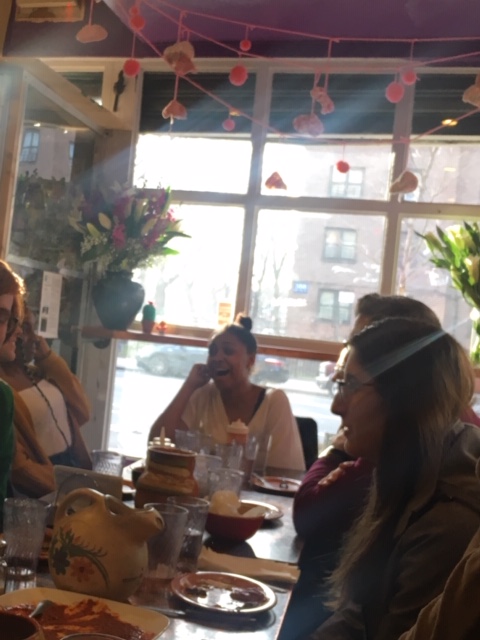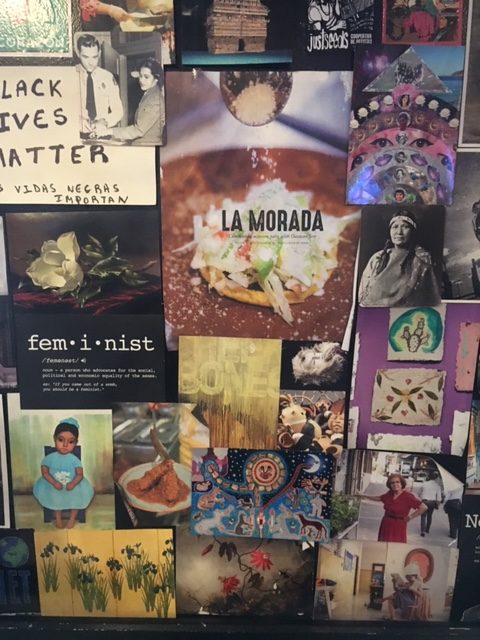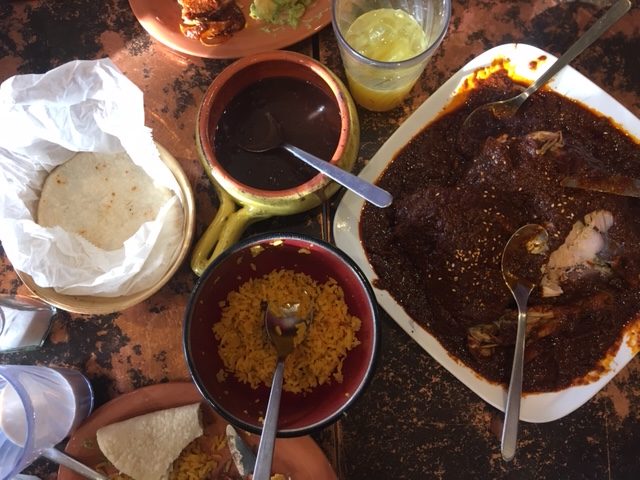Author: Megan Schaffner, junior
The Student Spotlight Series is an opportunity for Rose Hill Honors students to interview their peers in the Program and share the conversations with the broader community.
For this article, Megan Schaffner, a current junior in the Program, interviewed graduating senior, Stephen Lebak. Stephen is majoring in Mathematics and minoring in Computer Science. He has been a dedicated member of the Fordham Pep Band since his freshman year and will begin an exciting job with Boeing after graduation this May. Within the Honors community, Stephen has become well-known and loved for his incredible baking.
Megan: Was there something that drew you to your major and minor?
Stephen: I did come in as a math major, but just as a math major. I had little to no interest in computer science [originally.] When Fordham made my first semester schedule, they put me in an introductory Computer Science course… I had a really good professor and she got me interested in the material. I felt like I understood it and enjoyed it, so I kept taking classes and tacked on the minor. I nearly switched to the major, but a lot of what makes computers run is based on linear algebra and math in the first place, so it seemed more logical for me to follow the math major.
Megan: I hear you will be working with Boeing after graduation. I am curious to hear more about that.
Stephen: [My interest in them] is something that’s come up over the past couple of years. The team I’ll be working on specifically programs flight simulations, which are then used to train air-force pilots. A lot of jobs in the contracting/defense industry are perhaps not as ethical as one might hope. So, especially after coming out of a Jesuit school [where there is an emphasis placed on ethics and justice], I was lucky to find [a job aligned with those values].
Megan: And where will you be?
Stephen: The job is in St. Louis.
Megan: Are you from around here?
Stephen: Yes, I’m originally from Queens; I went to high school in New York and lived with my grandparents then. Before that, I was in Boston, where my parents still are.
Megan: So is the move to St. Louis a daunting task for you or is it not too big of a deal?
Stephen: It depends on the day. I will certainly say that sometimes it’s really exciting—I get to go to a new city, start from scratch. On other days, I’ll ask [myself], “What am I getting myself into?” It basically is a full overhaul. I do know one person there, but that’s really it, so it will be completely new. It’s exciting though; it should be fun.
Megan: I’ve also been told that you’re quite the popular baker, so I was wondering if you’d want to talk a bit about that?
Stephen: [laughs] Who told you that? Okay, so this goes back to my late high school days. Every now and then I would bake cookies, except I lived with my grandparents and my grandfather immediately would go on a diet and my grandmother wouldn’t eat them either! And then I’d have all of these cookies. So I would bring them to school, feed my lunch table, all that kind of stuff. That carried over to Fordham, [especially] last year and this year, since I live in an apartment where I have my own kitchen. It’s the same logic: I’ll make a batch of cookies and I can’t eat all of them. So I go around, distribute them to friends, many of whom I have met through Honors, one way or another. It’s also a great way to see people and catch up, talk—and then they get a cookie out of that.
Megan: Do you have a signature baked item?
Stephen: Yes, chocolate chip cookies are my signature. Not particularly fancy, but a classic.
Megan: And well-loved by all! So, in terms of Honors, do you have either a favorite thing about the program, or a favorite memory, looking back now that you’re just about done?
Stephen: There’s definitely a few! I would say the fact that you’ve got 13 kids per class, really. The fact that you can have really close discussions in basically every single class because of that [is really special]. Also, the nature of the class brings everyone together really fast. By the end of the first year, my [cohort] was very tight-knit.
Megan: Yeah, that’s really great! Do you have a favorite Honors professor?
Stephen: I have different ones for different reasons. First semester, I absolutely loved Dr. Harry Nasuti. He’s wonderful. He would tell us about back in the day when he was the director [of the Honors Program]. He told our class the first day, “These are going to be your best friends” and I told him two years later, “Dr. Nasuti, you were 100% right.”
All [of the Honors professors] have been good—we’re talking about the best of the best of the best. I had Professor Nick Paul for Medieval History and no matter what the subject was, he was able to make it fascinating. The way he talked about everything would make it seem so interesting and you would get just as invested as he was in the subject
Megan: What’s one thing you’ll miss most about Fordham?
Stephen: I have thought about that one a little bit because Pep Band season just wrapped up. The [women’s basketball team] won the A10, so we went to the NCAA tournament in Syracuse and that was basically my last game. Other than Honors, Pep Band was a really good group for me; I met a lot of my close friends there. I’ll also miss the Honors Program. I’ll miss having a community around me of people of that caliber of intelligence and being able to hold discussions with them about virtually anything—that’s going to be something that I don’t think I’ll be able to find outside of Fordham or really anywhere. So I’ll certainly miss that.
In terms of what I’m excited about, I’m moving out to St. Louis and I’m starting from scratch. I’m excited to start over and build up a great group around me, or try to! I think it’s something that certainly daunting as a task, but it’s one of the most rewarding things. I’ve done it twice now—once in high school and once at Fordham—and it really is just so rewarding. And I think Fordham prepares you well to do that by teaching you to care for the whole person, teaching you how to think and connect, and giving you the knowledge base to be able to connect with other people. It all prepares you well, and I think it’s prepared me well to do that [in St. Louis].


